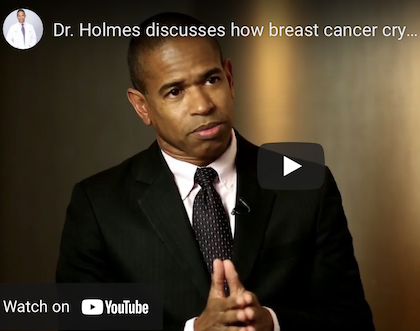Cryoablation
An effective alternative to breast cancer surgery - Cryoablation is a procedure done in-office to freeze and kill of small breast cancer tumors.
Cryoablation is alternative to surgery for selected breast cancers, using a leading edge technology to freeze and kill breast cancer tumors.
Cryoablation
Cryoablation is a highly effective, minimally invasive tissue freezing treatment for small breast cancers, and an alternative treatment to surgery in suitable patients.
In the same way as surgery removes a tumour, cryoablation permanently destroys the tumour through freezing the tissue via a thin probe, inserted through the skin into the breast. An ice ball forms at the tip of the probe, engulfing the tumour – targetting only the cancer cells and killing them with extreme cold.
01
Quick
Cryoablation treatment takes less than an hour to complete, and is conveniently performed in our rooms.
02
Proven effectiveness
There have been 3 large clinical trials (2 of which are ongoing) and multiple smaller studies. All the published results show >95% successful ablation in tumors smaller than 1.5cm.
03
No hospital admission
This means reduced costs and infection exposure, less cost and the ability to return to normal life sooner.
04
No general anesthesia
Only local anesthesia is required for the treatment.
05
Excellent cosmetic outcome
No scarring or breast disfigurement, a palpable lump remains at the tumor site after cryoablation. This is scar tissue that forms after tumor destruction. It will resolve within 6 to 12 months.
06
Minimal post procedure discomfort
Post procedure pain is usually mild and can be controlled with anti-inflammatories and paracetamol.
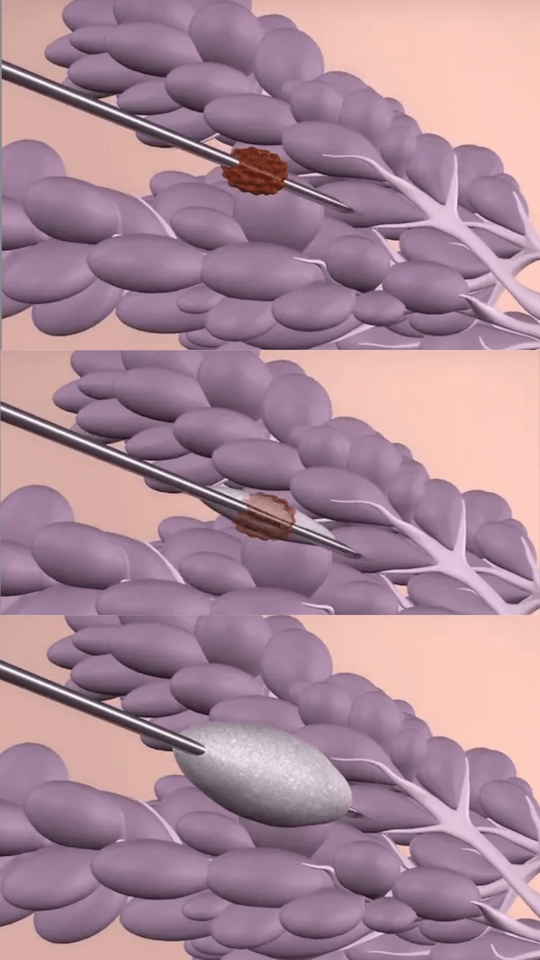
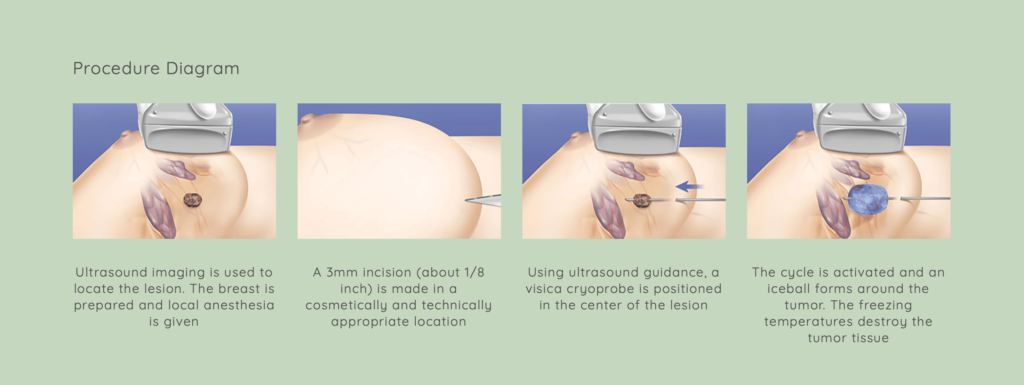
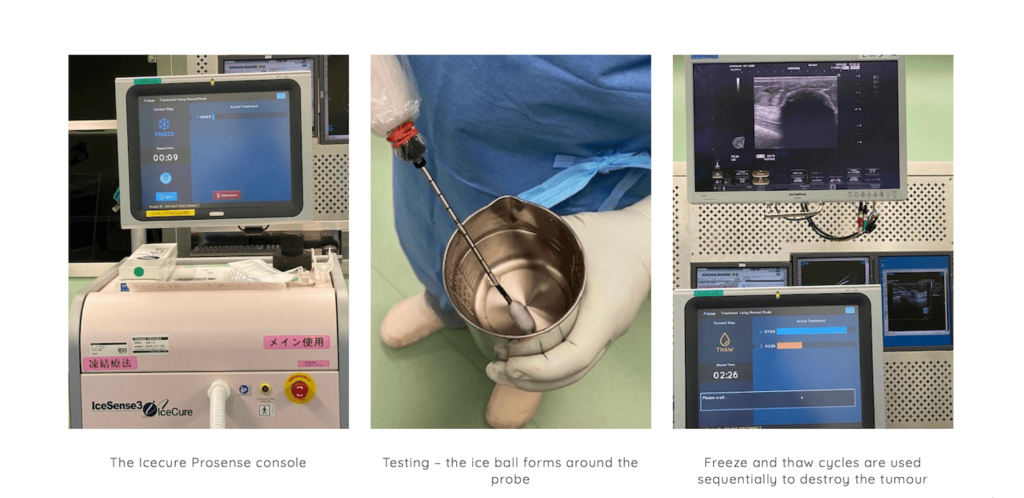

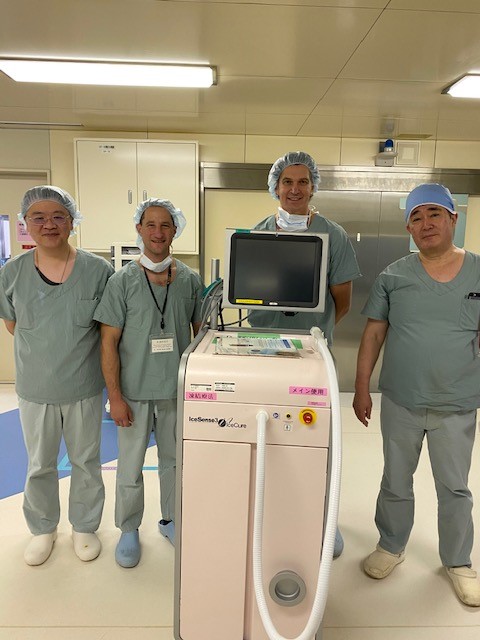
International experience and Clinical Trials
Internationally, there is considerable experience with cryoablation of fibroadenomas of the breast. In the last 10 years there is growing evidence for effective cryoablation of small malignant carcinomas of the breast. There is almost universal agreement across the studies that for smaller breast lesions (<1,5cm) cryoablation results in absence of residual disease and negligible recurrence in the first 3 – 5 years.
The largest (completed) clinical trial so far (ACOSOG Z1072) demonstrated >90% success rate for complete ablation of breast cancers smaller than 2cm. The ICE-3 and FROST trials are larger multi-center clinical trial based in the United States. Preliminary results show close to 100% cryoablation success in smaller cancers (≤ 1,5cm).
Professor Eiseke Fukuma is a pioneer of cryoablation based in Kameda, Japan. He has performed more than 400 procedures since 2006. Less than 1% cancer recurrence has been recorded.
In the USA there is FDA approval for treatment of fibroadenomas and cancers (on and off trial.)
FAQ
Cryoablation is a minimally invasive treatment for small breast cancers. It is an alternative to surgery in suitable patients. Just as surgery removes a tumour, cryoablation permanently destroys the tumour.
The decision to perform cryoablation is taken by the patient in consultation with treating doctors – all referrals for cryoablation are to be directed from a surgeon or oncologist.
Dr Peter Schoub, Diagnostic Radiologist based at Parklane Radiology in Johanesburg is certified and experienced at successfully performing the cryoablation prodecure on-site.
- Breast tumor is identified through imaging or finding a lump, and the patient generally has a biopsy to identify the tumor type
- Local anesthetic is used in the affected area
- Using ultrasound guidance, a thin probe is inserted into the center of the tumor
- The system then uses extreme cold to freeze the entire tumor in ice
- At the end of the procedure, the tip of the probe is warmed and the probe is removed
- Because ice is a natural anesthetic, patients generally only need a n asprin for any discomfort
Over the following months, the tumor site is healed and the dead tissue is replaced by healthy tissue!
Cryoablation is usually performed by a surgeon or an interventional radiologist, a doctor who specializes in procedures that require imaging guidance. Here at the Parklane Women’s Imaging Centre you’ll be treated by Dr Peter Schoub and his team. Dr Schoub qualified as a doctor in 1998, and as a radiologist in 2007. For the last 10 years he has focused on breast radiology.
Dr Schoub works within several multidisciplinary breast cancer teams around Johannesburg. The largest, the Netcare Breast Care Centre of Excellence at Netcare Milpark Hospital, is fully accredited by the National Accreditation Program for Breast Centers (NAPBC), administered by the American College of Surgeons.

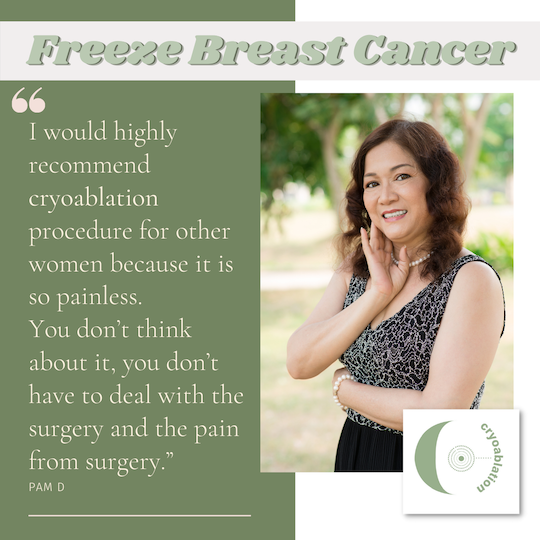
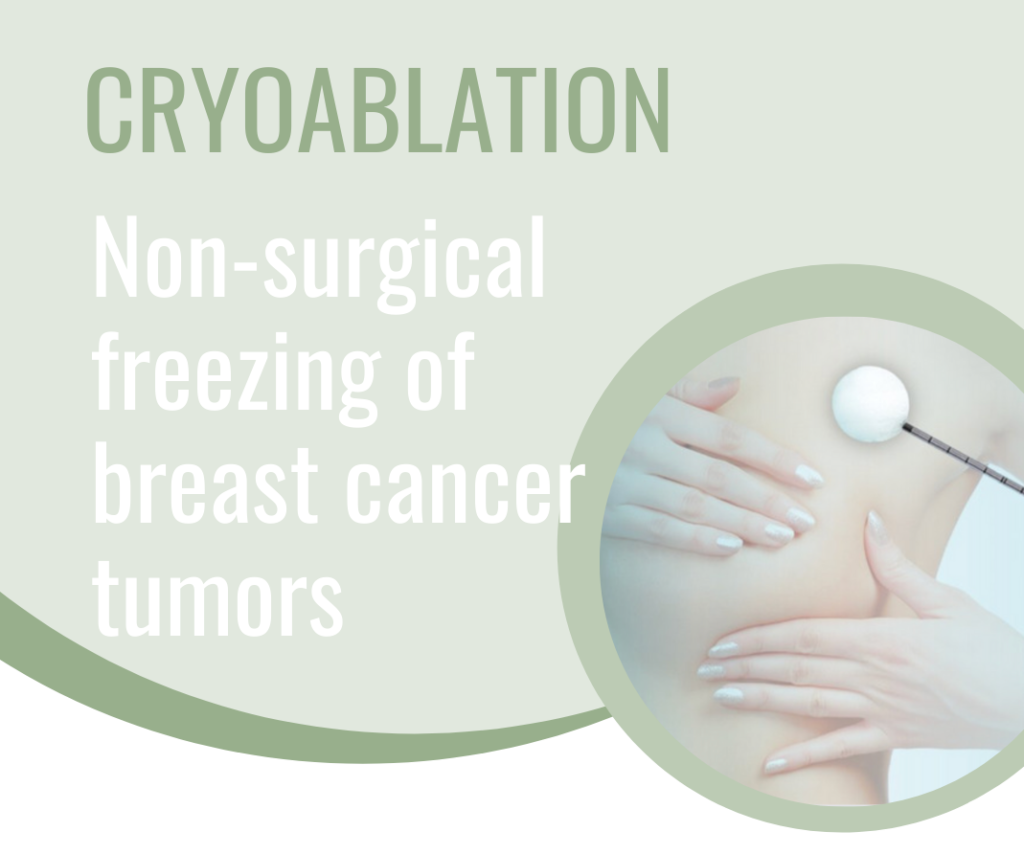



Contact Us
Need to talk to someone?
Connect with us if you have any questions, queries or would like to book an appointment.

